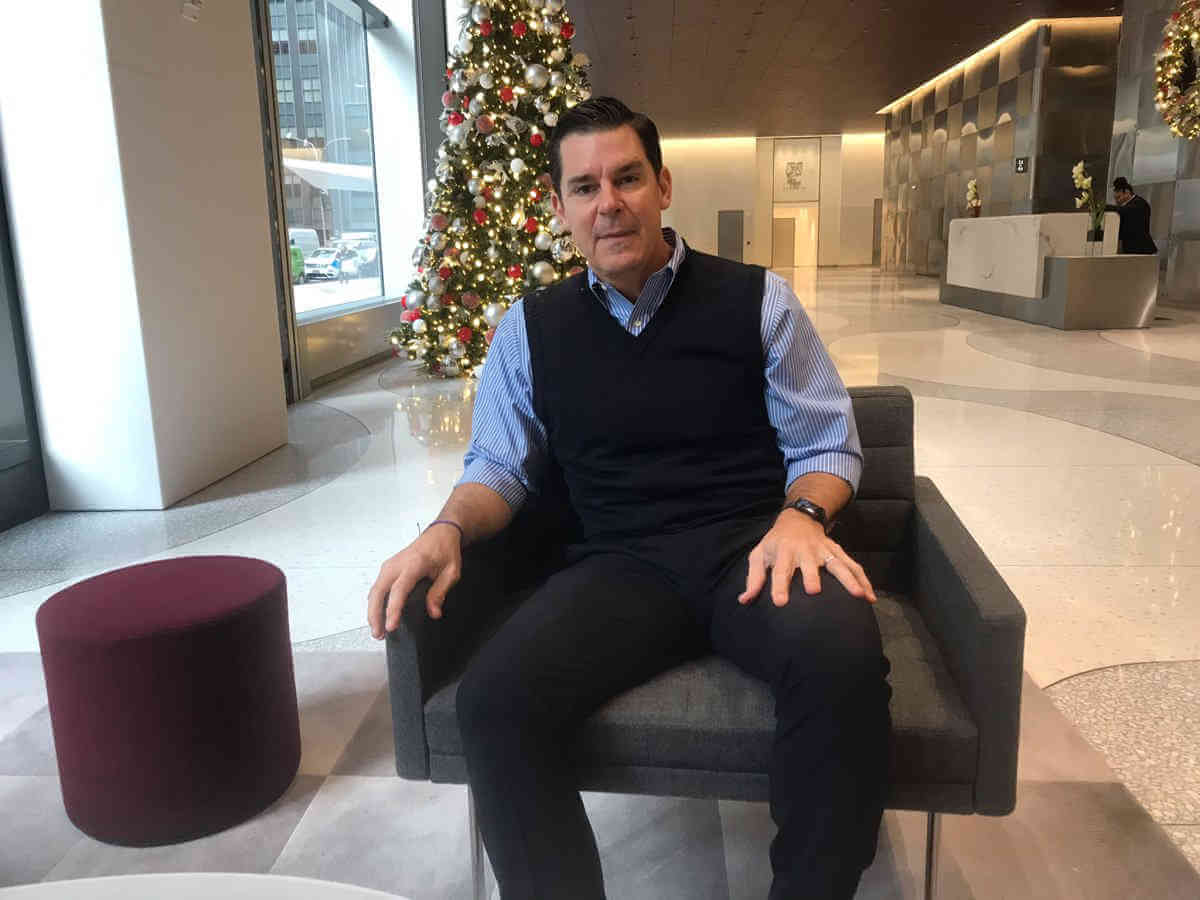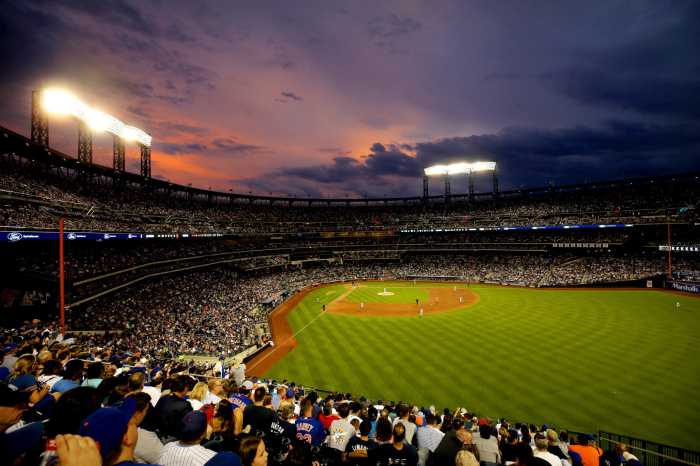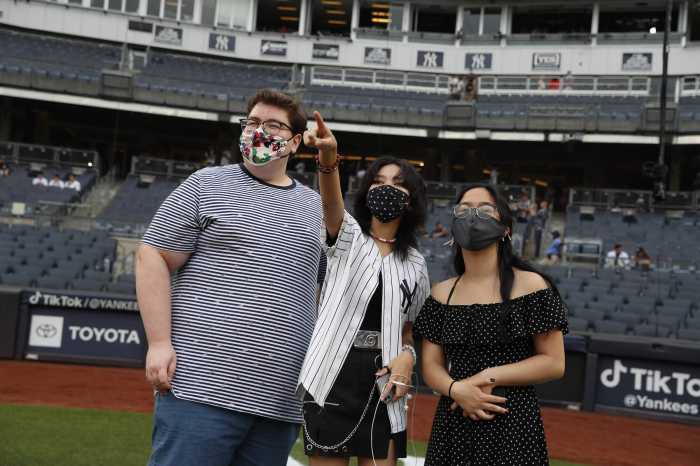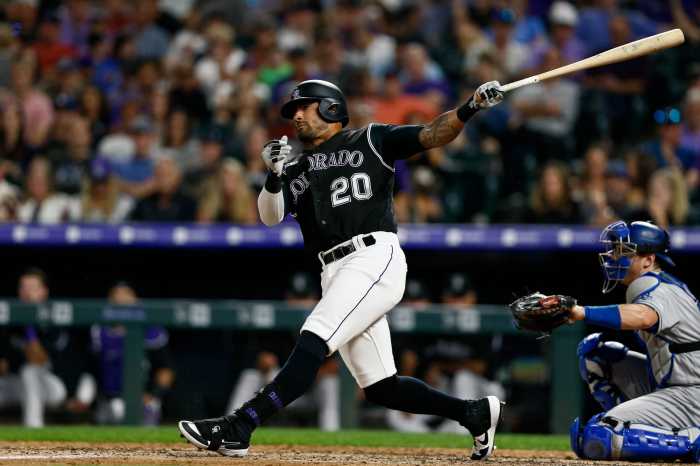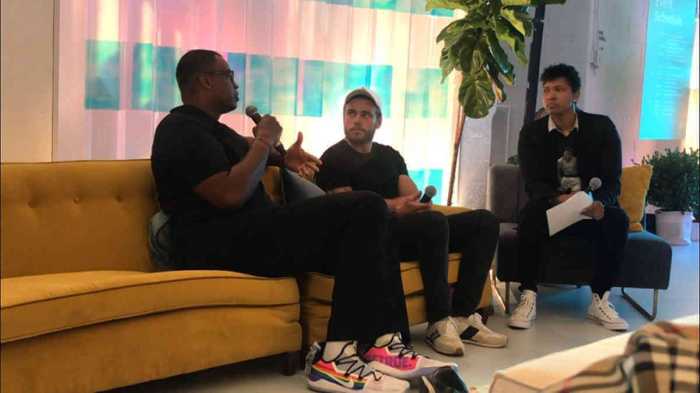Queer baseball fans are on the edge of their seats as the Houston Astros bat it out with the Philadelphia Phillies for the 118th World Series. With the conclusion of National LGBTQ History month and the start of World Series, it’s worth asking, yet again, when Major League Baseball will have its first active openly gay player.
This year, pitcher Solomon Bates became the second known Minor League Baseball player to publicly come out when he posted on Instagram on August 9 following his release from the Richmond Flying Squirrels, a San Francisco Giants Double-A affiliate. Two days later, he was signed by the Sioux City Explorers, part of the American Association of Professional Baseball, an independent league, on August 11.
Last year was a key year for out professional athletes in America’s top sports. In the NFL, Carl Nassib — who is now on the Buccaneers — came out when he played for the Raiders, while minor league hockey player Luke Prokop also came out last year. The NBA was the first out of the top three American men’s sports to have an active player come out, Jason Collins, in 2013.
The MLB is the only top pro American male sports league where an active professional athlete has not come out, though former Athletics and Dodgers outfielder Glenn Burke was, in many ways, out to players on his own team. Burke played in the big leagues in the mid-to-late 1970s and died in 1995 after suffering from AIDS complications. Outfielder Billy Bean came out in 1999 after playing for the Tigers, Dodgers, and Padres in a major league career that spanned from 1987 to 1995.
Two players came out this year at the minor league level, Bates and David Denson, while one player came out in the Independent Baseball League, Bryan Ruby. A college player, Brian Zapp, came out in 2021.
The IBL is not affiliated with the 30 franchise teams of the MLB.
“There’s only been two men in the 153-year history of Major League Baseball that have played in the major leagues that have ever come out and we both did it after our careers, Glenn Burke and myself,” Bean, who serves as MLB’s senior vice president of diversity, equity, and inclusion and is a special assistant to the commissioner, told Gay City News.
Retired umpire Dale Scott, 63, came out while still calling the shots at home plate for the MLB in 2014. Umpires are represented by the Major League Baseball Umpire Association.
The two men recounted their careers in their memoirs, “Going the Other Way: An Intimate Memoir of Life In and Out of Major League Baseball” (Bean, 2014) and “The Umpire Is Out: Calling the Game and Living My True Self” (Scott, 2022).
“If you had told me then that in 2022, there would be no out Major League Baseball players on the current roster, I would have been surprised a little bit,” Scott said from his home office outside of Portland, Oregon.
Speaking from his New York office, Bean said that the MLB is ready to have its first openly gay active player come out.
“I do wish and hope soon that we will have a tremendous player come out,” said Bean, who then pointed to Collins’ success story. “He had the makeup and the character to carry that message. It’s a lot to put on the shoulders of one athlete.”
Scott is somewhat disappointed that it hasn’t happened yet after the LGBTQ community made key strides in society during recent decades.
“I thought that would kind of translate in other areas, and I think it has, but it just hasn’t broken the barrier for an active major league baseball player,” he said. “We’re close.”
The clubhouse
Baseball’s bro culture has pushed many gay Major League Baseball players into the closet, even in 2022.
Speaking with Gay City News before heading out into the dugout in Frankfurt, Germany August 8, Ruby, 26, explained that baseball is a “game that is built on being macho.” It is drilled into the players from an early age. The gay jokes are freely slung from the dugout to the field, and in the locker room. “Fag” is used as an insult “if they don’t play well,” he said, adding that he faces similar machismo in his emerging country music career.
“You’re on the baseball field and you’re hanging with the jocks every day,” he explained. There is an unspoken and sometimes “very loudly spoken” attitude that being gay in baseball is “like the cardinal sin,” Ruby added.
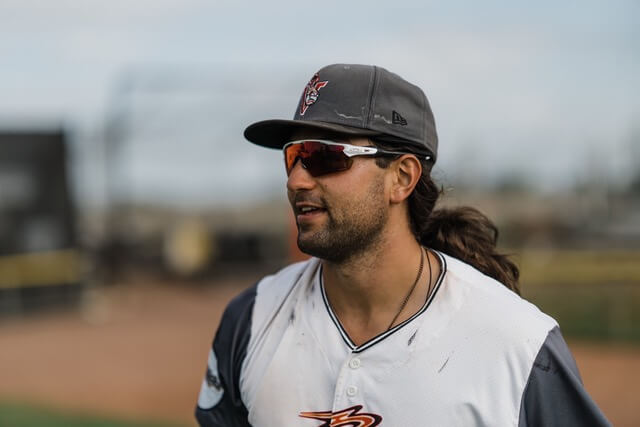
That “cardinal sin” was what five Tampa Bay Rays players allegedly protested when they ripped off the Pride patches on their uniforms and wore the team’s standard hat in June. Pitcher Jason Adam told the Tampa Bay Times they opted out for religious reasons.
“That was a black eye on what was otherwise an extremely successful and wonderful Pride season in Major League Baseball,” Scott said. The incident cast a shadow over the MLB’s pride season. It also took media attention away from a major moment in MLB history when the Dodgers, Giants, and umpires all sported rainbow MLB caps in solidarity for LGBTQ rights at the June 11 game in San Francisco.
“That was a big milestone,” said Scott. “It kind of got whitewashed a little bit because of the controversy, because of the Tampa mess, and that’s unfortunate. So, it’s still out there, but I do think that it has changed. It’s just a much [more] open, more relaxed atmosphere or thought process than it was 20 years ago, and lord knows when I came into the league in the 80s,” he added.
Bean preferred to give the five Tampa Bay Rays players the benefit of the doubt.
“I looked at that as an error on the part of the organizers of that night not giving the players adequate time to understand or make the decision to wear the jersey on their own. It’s very possible they could have misunderstood. Just because it doesn’t work for me, does it mean that it’s wrong,” he said.
The Tampa Bay Rays incident was a reminder of the work that needs to continue to be done to pave the way for MLB’s first openly gay player.
Ruby told Gay City News that he knows other gay pro baseball players who have reached out to his organization, Proud To Be In Baseball, which supports gay baseball players at all league levels, but they won’t publicly come out, he said. They are scared that they will never be able to play baseball again.
Ahead of the curve
Bean was hired by the MLB as its first-ever ambassador for inclusion in 2014. Since then, he’s grown the position, which doesn’t just cover ballplayers or the LGBTQ community, he explained, and today his job oversees diversity, inclusion, and equity for the entire league.
It’s his job to help people in the league understand cultural differences across communities and nationalities.
“When I was a player, there were so many moments where homophobia was rampant and there was no recourse for that,” Bean said.
“It’s important that the players understand that there is the opportunity to have [an] impact [on] the communities in which they play, [and] their cities where they come from,” Bean said.
A homophobic comment from one player, he said can resonate across an entire country.
“There’s no place for racism, there’s no place for misogyny, and there’s no place for homophobia in baseball.” he said.
It may have appeared that MLB was ahead of the curve and then hit a curveball when it comes to paving the path for a gay ballplayer to come out. But baseball is much more complex than many people might realize, Bean explained, especially with over 5,000 professional athletes including the minor leagues.
Bean believes the multiple components of the sport is why baseball hasn’t seen its first openly gay ballplayer come out yet.
Scott added that baseball culture inside the clubhouse is “very tight.”
“One of the problems, I think, for gay players not coming out is they didn’t want to be the story,” Scott said. “They don’t want to be the distraction,” especially if their team goes on a losing streak.
That’s one of Bean’s concerns too.
“I’m not worried about the player that wants to come out of the closet,” he said. “I’m worried about how the people around that athlete are going to react.”
Ready, waiting for the perfect hit
“The world is changing every single day. If we wake up tomorrow and a player decides to come out, we need to be there for that player to be supportive,” Bean said. “That player will be called a Major League Baseball player who just happens to be gay instead of a gay person who’s playing Major League Baseball.”

